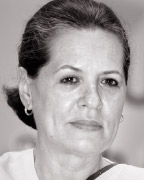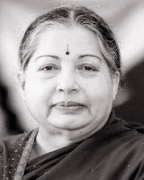The pull of the states on New Delhi
 If
coalition compulsions played a major role, almost as big as US pressure,
in India's vote against Sri Lanka at the UNHRC in March, these
compulsions now appear to be causing growing concerns about the
stability of the Indian government, with New Delhi being compelled to
share much more power than ever before with the states. If
coalition compulsions played a major role, almost as big as US pressure,
in India's vote against Sri Lanka at the UNHRC in March, these
compulsions now appear to be causing growing concerns about the
stability of the Indian government, with New Delhi being compelled to
share much more power than ever before with the states.
Sixty five years after independence and 62 since the Indian
constitution came into effect, political trends show all signs of moving
away from Delhi as the focus of political power to the states that are
emerging as new power centres; and pointing to the near inevitability of
coalition politics becoming the reality of future governance in the
Indian Union.
|

US Secretary of State Hillary Clinton (L) talks with India’s
West Bengal state Chief Minister Mamata Banerjee
at the Writers Building, which houses the State Secretariat, in
Kolkata on Monday. AFP |
Pressures from the states are piling up on Prime Minister Manmohan
Singh and the Congress leader Sonia Gandhi, with Chief Ministers of
several states not ready to bow down to New Delhi on how terrorism has
to be tackled in the country. They seek much more than mere consultation
or reporting back to them after anti-terrorism operations are carried
out. This is only one aspect of the new rise of the states in India,
with many questions being raised about the extent and quality of
federalism, which is the very basis of the Indian Union.
Just now, two women are in the forefront of this trend in Indian
politics, making the Congress-led UPI government at the Centre weaker by
the day, and indicating a new dimension to Indian politics, which will
have an impact not only within India, bit also outside, among its
immediate neighhbours.
New found strength
The two women are the Chief Ministers of West Bengal and Tamil Nadu -
Mamata Banerjee and Jayalalitha Jayaram. They are women cast in
different moulds but with a new found strength and determination to
assert the powers of their states against larger interests of the Indian
Union. Both of them are populist politicians, who would do everything to
gather votes for them and their parties within their states,
irrespective of the consequences for the larger needs of India. Another
commonality among these two women, one of whom - West Bengal's Mamata
Banerjee, has been named among the 100 most influential people in the
world in the recent Time magazine selection - is their chequered history
in politics.

Sonia Gandhi |

Manmohan Singh |

Jayalalitha Jayaram |
Mamata Banerjee is the 11th and current Chief Minister of West
Bengal, is the first woman to hold this office. She had a long
association with the India National Congress (INC) from her student
days, was the General-Secretary of the All India Youth Congress, and in
1997 founded the All India Trinamool Congress, after separating from the
INC.
Her political swings saw her joining the BJP in 1999, becoming a
member of the BJP-led National Democratic Alliance (NDA) government and
was allocated the Railways Ministry.
In early 2001, after a political exposure, Banerjee walked out of the
NDA Cabinet and allied with the Congress Party for West Bengal's 2001
elections, which led to wrong expectations that the move could unseat
the Communist government. However, she returned to the NDA government in
January 2004, holding the Coal and Mines portfolio, till the May 2004
elections, when she was the only Trinamool Congress member to be
returned to Parliament from West Bengal.
She is well known for her agitations on behalf of the farmers of West
Bengal, and has taken strong action against measures to industrialize
the state, despite the growing importance of industry in the Indian
economy. In October 2005 she protested against the forced acquisition of
land by the Left Wing government in the name of Industrial Development,
saw major companies such as Tata move their proposed industrial plants
away from West Bengal to other states, but still was successful in
retaining her influence in the state.
Before the 2009 parliamentary elections she forged an alliance with
the Congress-led UPA, which alliance bringing Banerjee back to the Union
Cabinet as Railways Minister for a second time.
Last year she pulled off a landslide victory for the All India
Trinamool Congress in West Bengal, defeating the world's longest serving
democratically elected communist government, of the Communist Party of
India (Marxist) - led Left Front in West Bengal, bringing to an end 34
years of left rule in the state. The 2011 Assembly election saw her
assume the position of Chief Minister of West Bengal.
Foreign direct investment
She has been known for maverick politics, such as many protest
demonstrations in the Lok Sabha, all of which has been based on her
populist beliefs. Among the more recent examples is her move against the
rail fare hike moved by her successor as Railways Minister, which was
explained as the means to keep the Indian railways from bankrupt. On
March 14, 2012, Rail Minister Dinesh Trivedi announced the annual rail
budget 2012 that included an all over hike in passenger fares, ranging
from 2 paise to 30 paise per kilometre for reasons of safety, along with
network expansion and associated modernizations.
Rail fares had not been hiked for nearly a decade, putting Indian
Railways into serious financial crisis. Yet, the proposal, which would
have added 4,200 crores to rail income, was fiercely opposed by Mamata
Banerjee, who compelled the Railways Minister to resign, just four days
later.
Her open action against industry in West Bengal, and support for the
farmers at much cost to the state, with heavy dependence on loans from
New Delhi, assured her victory in the last West Bengal polls, and made
her Chief Minister.
She is also strongly opposed to illegal migrations from neighbouring
Bangladesh, the sharing of river waters with Bangladesh, and to foreign
retail outlets being established in West Bengal, which is part of the
Centre's economic strategy.
With all her maverick politics she also has an academic background
having graduated with an honours degree in History. Later she earned a
master's degree in Islamic History from the University of Calcutta and
degrees in education and law. She is also known for her austere
lifestyle, always dressing in simple traditional Bengali cotton sarees,
while wearing no cosmetics or jewellery and always has a cotton bag
slung on her shoulder. She has remained single throughout her life.
However, most surprisingly she had a very good tete-a-tete with
Hillary Clinton when she visited West Bengal in the firsts leg of a her
recent visit to India, and is now talking of good opportunities for
foreign direct investment from the US to West Bengal, and had also said
she would like to see President Obama visit her state.
If this is the pressure that is building on New Delhi from West
Bengal, there is an equally forceful pressure emerging from Tamil Nadu,
and its own Chief Minister, whose politics is also known for its many
swings and hugely populist policies, much allegations of corruption,
with an even stronger challenge to New Delhi.
I will leave the pressures of Jayalalitha Jayaram on the Indian
polity for next week. |



